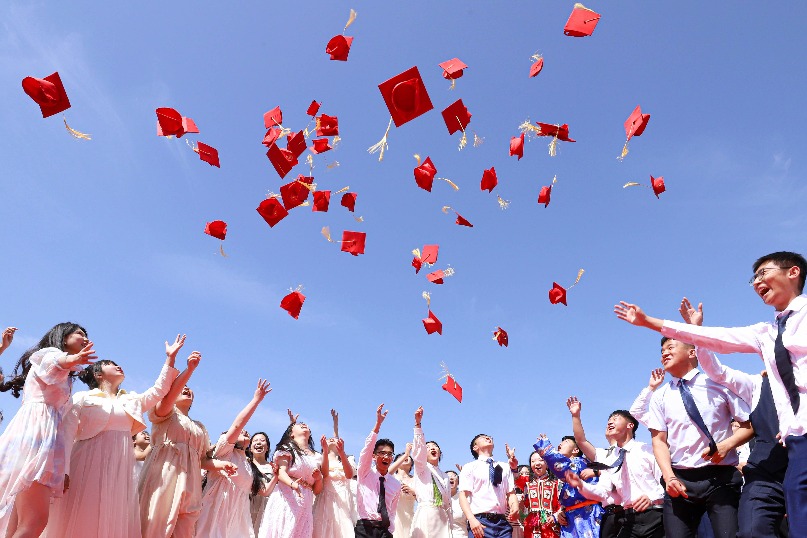Students, farmers plot success together
China Daily | Updated: 2020-08-27 09:34
SHIJIAZHUANG-Instead of returning home or traveling during his summer vacation, postgraduate student Ye Songlin toils in the field every day in Hebei province, 400 kilometers from his university in Beijing.
One of his tools is a ruler he uses to measure and record the growth of corn in the morning. In the afternoon he analyzes the data he has collected in a lab. The research helps him monitor the effects different amounts of water and fertilizer have on corn varieties. "Sometimes, I'm too busy to have a sip of water," the 23-year-old said.
Ye is one of 21 postgraduates from the China Agricultural University working at eight rural stations in Quzhou county.
The rural stations, also known as "tiny yards of science and technology", allow students like Ye to perform field research on farmers' plots, while farmers gain direct access to advanced agricultural techniques.
The students stay at the stations from spring to fall, monitoring the crops, training farmers and conducting field research. In winter, they return to campus for courses and to meet their instructors and fellow students.
It is the second summer vacation Ye has spent in Wangzhuang village, Quzhou. Born into a farming family in Henan province, Ye is not new to rural life.
The student from the university's Resources and Environmental Sciences School has learned to operate farm machinery and even knows how to troubleshoot in case the equipment needs a quick fix.
"Local farmers often come along to consult on technical questions about farming. I'm happy to offer some help," Ye said, adding that he will refer to documents or ask his instructors to answer some of their questions, which he believes is helpful for his study.
Zhang Hongyan, an associate professor at the university, said the students study smart machines, special cultivation methods and high crop yields in the summer vacation.
They also teach new skills to farmers.
According to Zhang, the first rural station in Quzhou was set up in 2009. The site was chosen after CAU instructors and students, at the central government's urging, investigated ways to reclaim saline and alkaline land to end a long history of low yields.
In Qianya village, fertigation as well as interplanting grapes with other crops such as peanuts and sweet potatoes, have been promoted.
Fertigation is the application of fertilizer with irrigation water. The process has been applied to more than 130 hectares of crops.
"Farming in a more scientific way does pay off," said Guo Liancheng, a local villager. "Under the guidance of the students I've had another grape harvest this year."
Long Shuyun, Party chief of the village, said with improved farming techniques, grapes have been better quality and produced higher yields. Together with the interplanted crops, this has brought local farmers an additional 15,000 yuan ($2,150) to 45,000 yuan per hectare.
With the higher income, farmers have gradually developed trust in the young students. A WeChat group has been set up so that farmers can ask them questions, Long said.
Li Huili, a student stationed in the village, said, "Only better crop yields can prove the effectiveness of my study and technical guidance."
Xinhua
























